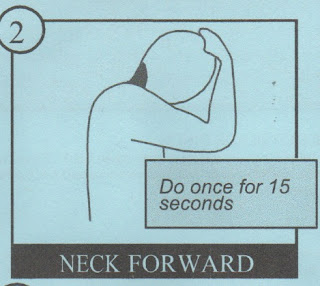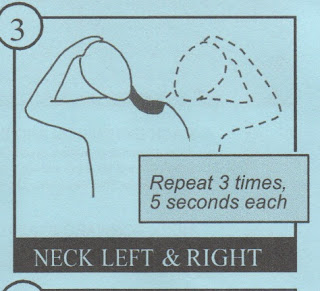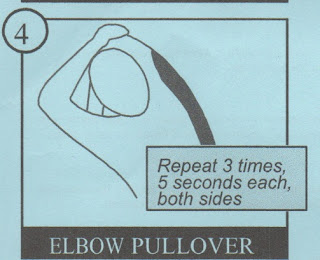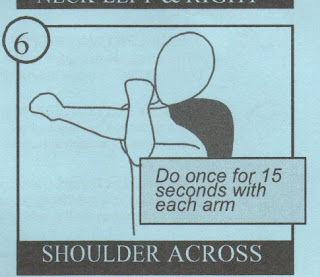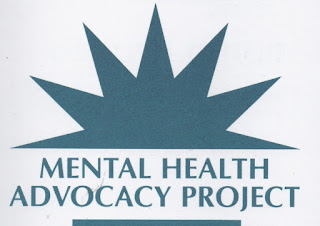This story I use to use in groups for prospective adoptive and foster parents. This was man years ago, but I think it is important to see loss and grieving, and fostering, from a child's perspective. I would like to credit Alice Winter. I was unable to find a website for her on the internet. I am not aware of any copright issues.
Only People Cry
By Alice Winter
(Underscored words are the thoughts of the child.)
She could hear the wind outside but that was all right. It wasn’t crying. She wasn’t afraid. She was just thirst again. She got up and this time remembered to put on
the new little bathrobe and slippers and went out of her dark bedroom toward
the dim light at the end of the hall.
In the kitchen she kept from looking at the shining black
squares of the windows. She didn’t think
of the places she has been before. All day
long she had been careful. She hadn’t
done any of the bad things that made them give you back to the social
worker. She turned the water on softly. She was very quiet and careful. At the last place she had splashed too much.
On her way back to the bedroom, she heard the lady say, “Is
the child up again? I wonder if she
can’t sleep.” Maybe getting up after you
went to bed was one of the bad things to do here.
She lay in bed, not listening to the wind or seeing the
darkness of the room. She walked along
the street in the sunshine and there were flowers all around and birds singing,
and she came to the house where her mother and father were waiting for
her. And they hugged her and cried
because they had found her again. They
had been looking everywhere for her, too.
When she woke up the next morning there was no sound in the
house. She lay very still because then
maybe the name of the people at this place would come to her. But the words, “Mr. and Mrs. Foster,” kept
running through her mind and she had to go over it all again. She had to think about that time long ago
when the social worker had taken her to her first foster home. She had been so little and dumb that she had
thought the name of the people was Mr. And Mrs. Foster. Then she learned how it was, and that a
foster home was a house where the man and his wife needed some money. And if they let her come and live with them,
the welfare court would send them a check every month.
Suddenly, the name Watson popped into her mind and she got
up and started making the bed. As she
moved, the frowning faces moved and she could hear their silent voices. She straightened the bottom sheet, tucked it
in, then pulled up the top sheet and blanket.
Then she put on the spread. She
was glad she had remembered to fold it the night before. When she was finished, she stood off and
looked at the bed, and she couldn’t see anything wrong with it. But maybe the faces could. Then she remembered the third place
back. There the beds were aired every
morning. You threw back the covers and
opened the windows and an hour later you made the beds. She wished she knew what to do.
In the bathroom, she washed her face and hands and brushed
her teeth, using only a little toothpaste.
When she was dressed, she hung her nightgown in the closet and went to
the kitchen.
When she appeared in the doorway, Mrs. Watson gave a little
jump and said, “Well, Ellen, you startled me.
Sit down and have some coffee.”
There was something different. At this place don’t be too quit. “I tell you it’s creepy, the way she
sneaks around the house. I look up and
there she is.” “I couldn’t stand the
noise. I’m just not used to having a kid
around.”
“Do you always wake up so early?” Mrs. Watson yawned and pushed her gray hair
back from her face.
“Yes Ma’am. But I
don’t have to. I could sleep later.”
“The dear Lord knows I could, too. But General Motors calls. Ed has to be at work at eight-thirty, and
with the long drive there’s no sleeping late.”
“No Ma’am.” Should she
offer to get up and cook Mr. Watson’s breakfast? “Not that I wanted her for the work, mind
you, but all she did was sit around and read.”
“She was always butting in, trying to take over. Always wanting to do something for the
Mister.” She would keep quiet, wait
and see.
Ellen pouted cream and spooned sugar into her coffee. It wasn’t too bad if you made it sweet
enough.
She wondered if if her mother would want her drinking
coffee. Mrs. Watson didn’t look a bit
like her mother, but nobody did. Nobody
was as pretty as her mother. Her mother
was always clean and had powder on her nose and smelled like the flowers that
were around her. They told her she had
never seen her mother but if she hadn’t how could her mother’s face be clearer
than Mrs. Watson’s right now, even with Mrs. Watson sitting there across the
table from her.
Mrs. Watson kept drinking coffee and began to look more
awake, and finally she said, “What do you want for breakfast, honey?”
From the look of the kitchen, with the skillet on the stove
and a carton of eggs set out, this wasn’t a corn flakes place.
“I like eggs,” she said and tried to sound definite.
“Eggs it’ll be. What
about some bacon?”
“Yes, I like bacon, too.”
She sat at the table while Mrs. Watson fixed breakfast for
both of them. Different sentences kept
going through her mind. “Would you
like me to set the table?” “Could I help
you?” “Shall I put the eggs away?” But she didn’t use any of them. She would wait until she knew.
When they had finished eating, Mrs. Watson lit a cigarette
and looked at her and said, “You’re a quiet little thing.”
Ellen smiled, but not too much. “She’s always grinning like a Cheshire
Cat. ”I couldn’t stand the way she
moped around. I never once saw her
smile.”
“What do you like to do, Ellen? I want you to be happy here.”
“I like to read. But
I like to work too. I like to wash
dishes and things like that.”
““Do you really now?”
Mrs. Watson’s eyes twinkled.
“Well, I tell you what. I’ll wash
the dishes today but every once in a while, I’ll let you do it. I promise.
I won’t be piggish.”
“Yes Ma’am.”
“You don’t have to keep saying Ma’am all the time
Ellen.” From now on you’re part of the
family. Ed and I always wanted a little
girl. Ed and I always wanted a little
girl. With our boy married and gone
away, you just fill the bill.”
“Yes Ma’am,” almost Lipped out but she was being
careful. Mrs. Watson didn’t have to say
that about wanting a little girl. She new they were paid for keeping her, and
that was all right because she didn’t choose them any more than they chose
her. They didn’t look a bit like her
father or mother. It was even.
But she would like to stay here until her parents found
her. Now that she was older, she was
glad she had never been adopted because that would have meant changing her
name, and they never would have known where she was. When she was little, and didn’t understand,
it had been different.
Mrs. Watson smiled and said, “Now I don’t want to hurt your
feelings and don’t go away mad, but I’m going to wash the dishes.
She put her arm around Ellen’s shoulder and said, “You run
on, honey, and do whatever you want for a while. Later on, we’ll go to the grocery store.”
When Mr. Watson came home that night, Ellen was in her
bedroom reading the new book Mrs. Watson had got at the grocery store. His voice was loud, and he must have been
just inside the door when he said, “Where’s that little girl of mine?” He should have known the social worker
wouldn’t be likely to be there then.
Mrs. Watson said, “She’s in her bedroom reading. She loves to read. She’s going to be a real student, I can see
that.”
“That’s the ticket,” he said, and then he came to the
bedroom and knocked on the door as though it were really her room. When she opened the door, he was there
smiling, and he rubbed his hand over the top of her head and his voce was
quieter and he said, “Hello Ellen. How’s
the girl tonight?”
“Fine,” she said and smiled just right.
The three of them went to the kitchen, and Mrs. Watson had
coffee ready and they sat drinking it.
Ellen choked a little on hers, and Mrs. Watson said, “Honey, I don’t think you like coffee. Actually I don’t suppose you’re old enough to
be drinking it.” She got up and heated
milk and made hot chocolate.
Mr. Watson said, “Say, where’s that rabbit mug I had when I
was a kid? Get that down for her Marg.”
They talked, then, but every once in a while one of them
would give her a look as though she were doing some very unusual thing to be
sitting there drinking from the rabbit mug.
It made her feel sorry for the.
They didn’t know that sometimes it was like this in the beginning, and
after awhile they would get tired of her.
But maybe this time, she would find out the bad things soon enough and
could keep from doing them.
The next day, the neighbor from across the street came over
and brought her little boy. Ellen was in
her bedroom reading and she heard the lady say, “I have yet to see your little
girl. Doesn’t she play outside?”
“She will,” Mrs. Watson said. “She’s still getting used to being here.”
“Is she dark or fair?”
“Blonde, a pretty blonde.”
“I’d like to see her.”
Ellen didn’t wait to be called. She got up and went out so the lady could
look her over.
“Here she is now,” Mrs. Watson said, and held out her arm,
and Ellen went and stood beside her. She
didn’t look down or sniffle or twist her hands.
The neighbor said, “She is a pretty little thing.” Then she leaned forward and looked straight
into Ellen’s eyes and said, “You’re a very lucky little girl. I hope you know that.”
‘Yes Ma’am,” Ellen said, but at the same time, Mrs. Watson
said, “Phooey!” and it was the first time Ellen had seen her mad.
Her voice was different right away, though, not mad any
more. And she said to Ellen, “This is
Jimmy. There are cookies in the
jar. Why don’t you two sit at the
kitchen table and have some.”
Ellen caught back the “Yes, Ma’am” in time and said “A;;
right,” and Jimmy followed her to the kitchen.
He was just her size and she wondered how old he was, but she didn’t ask
him. For a while they just sat there
eating cookies, but finally Jimmy said, “I got an airplane.”
“I have a book.”
Ellen brushed crumbs from her lap.
“A brand-new book.”
“It’s a Boeing.”
Mrs. Watson had come to the doorway and her face looked soft
and almost sad, but then she smiled and said, “Your mama’s ready to go home
now, Jimmy. Come along.”
One night a week later, Ellen lay in bed worrying because
she hadn’t found out any of the bad things.
She couldn’t keep from doing them if she couldn’t find out what they
were. She had been almost sure, at
first, that getting up after you went to bed was one of them. But the night before, she could hear the wind
outside, and she got up to get a drink of water. But the wind was still there when she went
back. She got up again and went to the
bathroom and, on the way back to her room, Mars. Watson came out into the hall
and said, “Can’t you sleep honey?” Is
something bothering you?”
She hadn’t planned to say it at all. “The wind, it sounds like it’s crying.” She looked down at the floor not wanting to
look at Mrs. Watson’s face.
“Sometimes the wind does sound like that,” Mrs. Watson
said. “But the wind can’t cry because it
isn’t a person. Only people cry.”
They went into Ellen’s bedroom then, and Mrs. Watson pulled
the covers up close around her, and they listened to the wind together until
Ellen fell asleep.
The next evening when Ellen went into dinner, there on her
plate, with her name on it, was a gold bracelet. She smiled at the Watsons and said thank you,
but she didn’t want a gold bracelet from them.
It was a good thing she’d got over being a crybaby a long time ago.
That night after dinner, Jimmy came over with his
birdhouse. :It’s coming apart, Mr.
Watson,” he said. “Can you fix it for
me?”
“Sure, Jimmy boy.
Come on down to the basement. You
come too Ellen.”
There were all kinds of tools down there, and Mr. Watson
said, “I know something my girl can do for me while Jimmy and I get this fixed
up. See here, the way I do this,” and he
took a nail and showed her how to straighten it out. She took the hammer, and on the very first
nail the hammer slipped. She hit her
finger and a lot of words rolled out.
Mr. Watson turned to her. He
looked serious and he said, “Those aren’t the kind of words we use here,
Ellen.” He didn’t say anything more for
a moment, and Ellen waited. Then he
said, “I’ll tell you a string of words that are all right in this house, ‘Ding
Dan Fiddle Faddle,’” and he started laughing.
She started laughing too the, and she hadn’t even thought about it ahead
of time.
The next Saturday Ellen and Mrs. Watson went to a big store
downtown and the clerk tried four different dresses on her. Mrs. Watson said, “They all look nice on you,
and none of them is too expensive. Which
do you like best?”
Ellen didn’t look at the pink one. She looked at Mrs. Watson for a hint, but
Mrs. Watson just sat smiling at her. The
clerk said, “With her eyes, the blue is nice.”
She was glad the clerk had said it, and she watched Mrs. Watson’s face
but it didn’t change. She just said,
“Yes, but Ellen can wear any color well.
It’s whatever she wants. She the
one who will wear it.”
“I like them all,” Ellen said at last and then wished she
could bring the words back. It sounded
as though she wanted them all. “Hint,
hint, hint, if she’d come right out and said what she wanted, I wouldn’t have
minded.”
“I know what we’ll do.”
Mrs. Watson stood up. “We’ll go
upstairs and have an ice cream soda and think it over.”
While they ate ice cream, Mrs. Watson told Ellen how it was
when she was a little girl, with three brothers and two sisters, and how they
lived on a farm and had a cow and made a playhouse in the barn loft with bales
of hay.
Ellen could see it all when they had finished their ice
cream, Mrs. Watson said, “Have you decided which dress?” And without thinking Ellen said, “I would
like the pink best.”
The next day they went to church and Mrs. Watson took her to
Sunday school and introduced her to her teacher. The lady said, “We’re glad to have you,
Ellen. What a pretty dress.”
Ellen said thank you and waited. “I couldn’t have taken her anyplace in the
things she had, I can tell you. You’ve
never seen anything like it.”
Mrs. Watson just patted Ellen’s shoulder and said, “I’ll be
back later,” and left.
On Monday, Ellen went to the store on the corner for a can
of baking powder, and Jimmy was there and they walked out of the store
together. When they were in front of the
Watson house, Jimmy said, “My mama says I don’t play with you anymore. She says that isn’t the kind of language I
need to hear. She isn’t surprised.”
“Your mama’s fat.”
Jimmy swung at her then.
He hadn’t said orphan or homeless brat, but all of a sudden she was
hitting him back and he was all the kids that ever had. She was strong and she could have fought
anyone.
Her arms were still flailing when Mrs. Watson came out and
stopped her. What on earth’s the trouble
with you two?”
Jimmy’s mother ran out and put her arms around Jimmy and
said, “I saw it. She hit first. She’s a no-good trouble maker.”
Mrs. Watson said, “I have an idea Jimmy was as much to blame
as Ellen.” Mrs. Watson looked at both of
them, and Ellen had never seen her look so cross. “Come in, Ellen,” she said and went into the
house.
Inside Mrs. Watson started making biscuits. “You’d better wash your hands and set the
table,” she said. “Fighting doesn’t
settle anything, you know, it only makes things worse.”
“Yes, Ma’am, Ellen said, and she wished it ws time to go to
bed and she could get away from Mrs. Watson’s cross face. It was too late for them to send her back
tonight.
That night after Ellen went to bed she was thirstier than
she had been for a long time. She got up
and as she passed the Watson’s bedroom door, she hears Mrs. Watson’s voice and
she stopped to listen.
“…don’t know what Jimmy did but I’m sure of one thing, she
didn’t start it.”
“No, she’s not a troublemaker. I’ve never seen a kid try so hard.”
“Too hard. The poor
baby isn’t sure we don’t bite.”
“She’ll get over it.
I couldn’t think more of her if she were my very own.”
“She is our own, our very own.”
A terrible, black feeling settled down in Ellen. How could she ever find the bad things
here? These people even lied to each
other. Even when they were alone and
thought no one could hear them, they lied to each other.
Another month went by and still she hadn’t found out the
really bad things, the things that made them send you away. One morning as she was leaving her room, she
looked around and saw that everything was neat, and she went to her closet, and
took her nightgown out and threw it on the bed, just any old way. She waited all morning but nothing happened,
and her nightgown was back in the closet and nothing was said.
That was the beginning.
Some mornings she didn’t make her bed.
Mrs. Watson would say, “Come on, get your bed made now,” and sometimes
she made it by herself and sometimes Mrs. Watson would help her.
One evening she put a lot of broccoli on her plate and
didn’t even taste it. Mrs. Watson said,
“Next time don’t take so much,” but she didn’t look as though it was a really
bad thing.
One day she went to the library three blocks away and stayed
an hour longer than she was supposed to.
It was almost dark when she got home.
Mrs. Watson didn’t like it, she could tell that. “I was about to come looking for you,” she
said. “Next time, be sure to come back
on time.” But Mrs. Watson seemed to feel
the next time she would, and she didn’t say any more about it.
One Saturday
afternoon when they had finished eating lunch, Mr. Watson leaned back and said,
“How would you girls like to step out?
What do you say to a movie, or maybe the zoo?”
“There a Walt Disney at the Avenue,” Mrs. Watson said. “Which would you like Ellen?” Adults like movies better than zoos, but then
some of them thought if you didn’t like the zoo you weren’t normal. They didn’t like it either, if you said, “it
doesn’t matter.”
Mrs. Watson was looking at her face and it began to seem to
Ellen that she could read Mrs. Watson’s mind and that she wanted her to say
movie. But Mr. Watson said, “Maybe you’d
like us to decide this time. It’s a
beautiful day, let’s go to the zoo. We
can go to see a movie anytime.”
“Sure, that’s fine,” Mrs. Watson stood up. “Let’s not even wait to do the dishes. Let’s just up and go.”
They put the food away and piled the dishes in the sink and
walked through the living room where the morning papers were lying all
over. Mrs. Watson’s knitting was out
from the night before and the big ash tray had a dead cigar in it. And when they came back, it was just the way
they had left it. They had just returned
when the social worker arrived.
Mr. Watson said, “Come in, come in, we’ll put on the coffee
pot.” And he went out to the kitchen.
Mrs. Watson picked up her knitting and said, “Sit down. We’ve just got home.” And she started knitting and didn’t say one
thing about the way the house looked. “I
can tell you, young lady, you better get this house cleaned up. If that woman from the court comes and finds
it like this, you’ll be back so fast it will make you head swim.”
Mrs. Watson said, “Hasn’t this weather been wonderful?”
The social worker said, “Yes it certainly has. Well, we deserve it after the kind of spring
we had.”
The pretended not to pay any attention to the house.
Mrs. Watson acted as though the social worker was just
anybody. “Oh yes, we’re getting along
fine. Get out your new shoes, dearie,
and show them to Miss Wilson.” “Here
Miss Wilson, sit here. I can’t keep this
house picked up. I had it straightened
up yesterday but I took the child to the zoo.”
Mr. Watson was the same as always, too. He came to the door and said, “Coffee’s
ready. Do you want it in her or at the
table?”
Mrs. Watson said, “Oh, let’s go out to the table.” And they went out and sat right beside the
sink full of dishes.
Pretty soon, Mrs. Watson said, “Ellen, why don’t you and
Miss Wilson walk up to the library? She
turned to Miss Wilson, then. “It’s a
lovely new building a branch we’ve needed for a long time.” And so Miss Wilson didn’t have to ask to see
Ellen alone.
When they were out of the house Miss Wilson said, “What have
you been doing, Ellen?”
Ellen told her about the new dress and church and the zoo
and how she’d been good and helped with the housework. “Only Mrs. Watson did most of it. And the house usually looks nicer than it did
today,“ she added.
Miss Wilson smiled and said, “It looked good to me, Ellen,
yes, very good. I think we’ve found the
place where you really belong.” But
Ellen knew it was just a stopping place.
A place to wait for her parents.
When they got back, Miss Wilson thanked the Watsons for the
coffee and Mr. Watson said, “Come back soon.
Any time.” Ellen could tell he
meant it. She could see that when Mr.
Watson scattered papers all over the living room or when they rushed off and
left the dishes, it was all right. It
wasn’t bad.
That evening after the social worker had been there, Ellen
cried. She was carrying an empty picle
jar out to the trash barrel and she dropped it on the back sidewalk and it
broke. She knew it wasn’t worth
anything, and she knew no one would care, but she started crying and couldn’t
stop. And Mrs. Watson put her to bed and
sat there until she fell asleep. For the
next few days, lots of things made her cry.
She was turning into a crybaby.
Once when she burned her fingers making candy, and once when she
couldn’t find her library book and it was due that very day, and once when she
saw a cat kill a baby bird, she cried.
The wind never did cry again.
From then on, and slowly, the voices began to fad. She still heard them sometimes. Sometimes she said or did what they told her
to. But gradually they were going away.
In bed at night she sometimes said the words to herself: “my
father, my mother,” and something hurt her, something leaving, something gone.
At night, just as she was going to sleep, she sometimes
thought, “Nothing bad. Nothing bad
enough to send you away.” But one
day she found out how fooled she had been.
She hadn’t planned to tell the lie. But when the new kids moved in next door that
afternoon, they made it so easy for her, almost as if they wanted her to lie,
or their mother did.
She sat on the steps and watched the men unloading the
truck, and she saw the father and mother going into the house. The mother was holding the little girl’s hand
and the little girl was carrying a doll.
The father stood outside in the yard a while and walked around and
looked up at the roof and at the bushes and trees, and then he went inside.
Soon the boy and girl came out and saw her and the girl
said, “Hi, we just moved in.”
Ellen got up and walked over to the driveway and said, “I
saw you. I’ve been watching.”
The boy said, “Come on, let’s play catch,” and he pulled a
ball out of his pocket and they made a triangle and threw the ball to each
other. Ellen didn’t miss the ball once,
and a feeling of fitting in with the new children was strong in her.
After a while, Mrs. Watson called her and she went
inside. There was a big plate of cookies
covered with wax paper, and Mrs. Watson said, “Honey, take these over to our
new neighbors but don’t go inside. After
they get settled we’ll call on them.”
Ellen took the cookies over and gave them to the boy. When he came back out of the house, the three
of them started turning handsprings on the grass and Ellen wasn’t very good at
it, but she could tell she would get better.
Pretty soon the mother came out of the house and said,
“Honey, these cookies are delicious. You
thank your mother for me. What’s your
name?”
“Ellen.”
“I mean your last name.”
“Watson.” It came out
naturally and it seemed real and true.
Even the sound of it was right.
But she knew it wasn’t true and her name was Ellen Ganin but this time
she lied on purpose and she repeated it in on sentence and said, “My name’s
Ellen Watson.”
That ws when she looked up and saw Mrs. Watson standing in
the doorway with a different look on her face than she’d ever had before. And Ellen could see it all right then: the
packing, and the social worker and Mrs. Watson being polite to each other and
saying sometimes these things don’t work out.
“I’m sure you tried.” “I did
my best.” Don’t worry, we’ll find
another place.” “I tried to do my
Christian duty.”
Ellen turned, then and ran into the house past Mrs. Watson
and into her bedroom and closed the door and lay on the bed. And it wasn’t dark and the wind wasn’t making
sounds outside the house but she was walking along in the sunshine on her way
to find her mother and father. This was
the first time on the walk that she had ever noticed what dress she had on and
it was the pink one and she could see herself walking along. She was carrying the book Mrs. Watson had
bought for her and she wore the bracelet and her name on it in gold that Mr.
Watson had given her. It took her longer
than usual to find the house and she thought she might never come to it. But when, at last, she did, and her mother
held out her arms to her, her mother’s face was just like Mrs. Watson’s and Mr.
Watson was standing behind her. They
were glad they found her and they were so glad they started to cry and she
started crying, too.
Mrs. Watson was leaning over the bed smoothing her hair and
saying. Don’t cry honey. Everything’s all right.” Then Mrs. Watson said, “Mother’s here.
Mother’s here.”
The End


